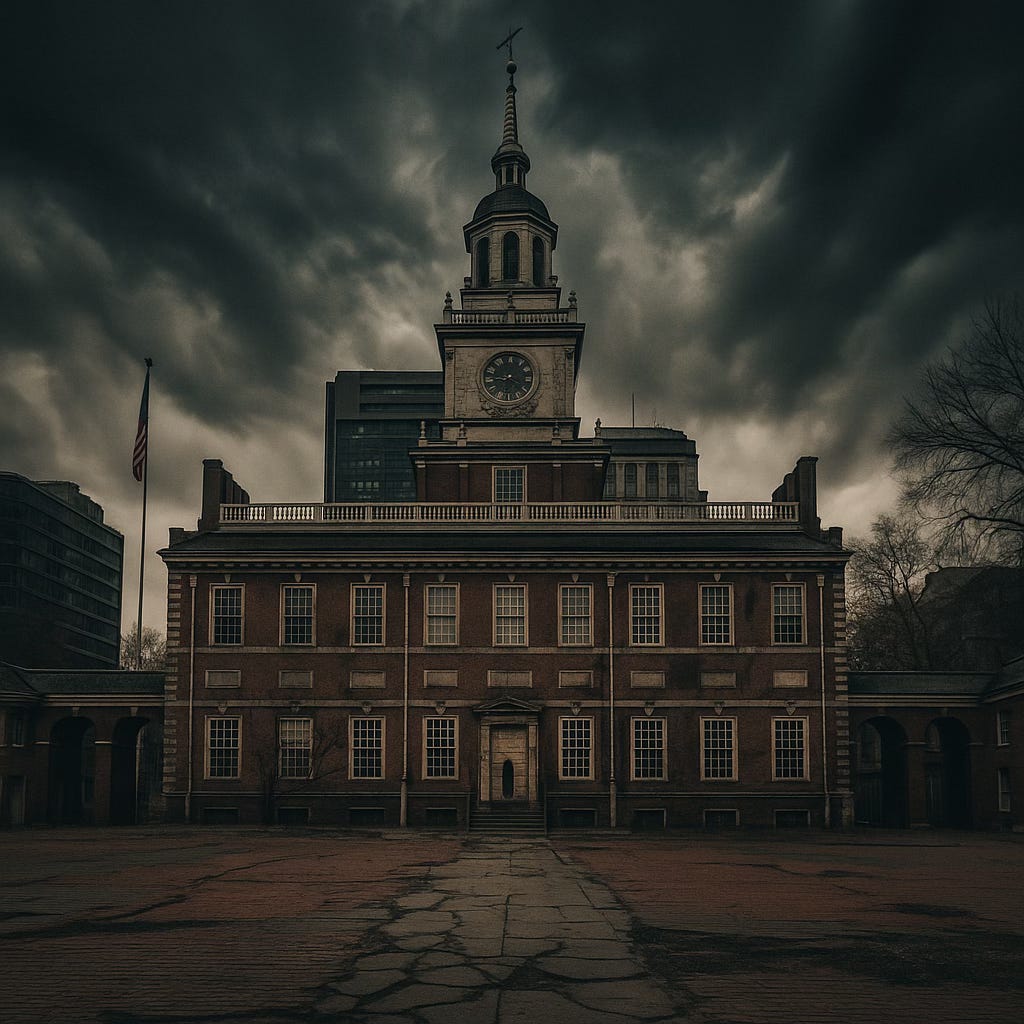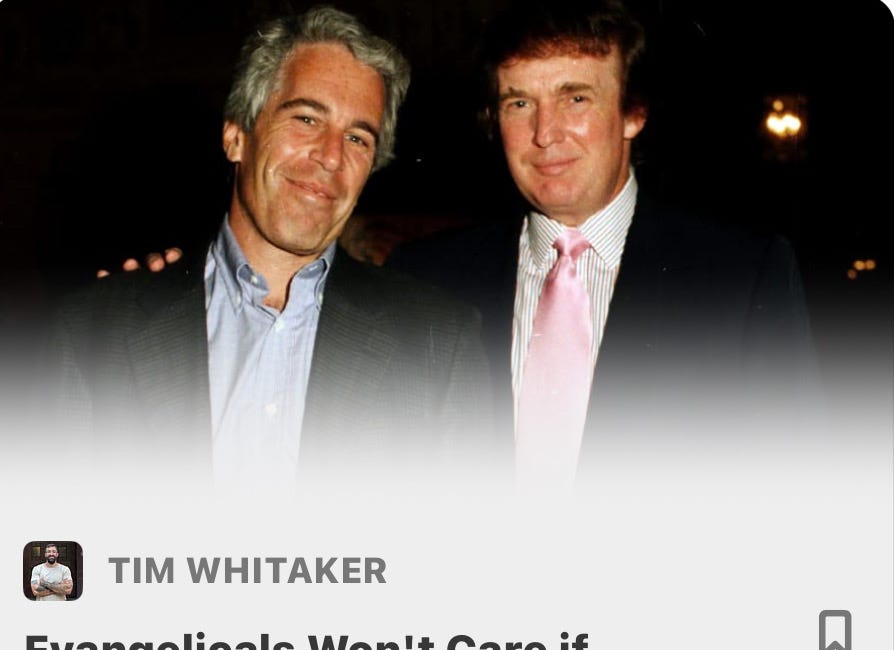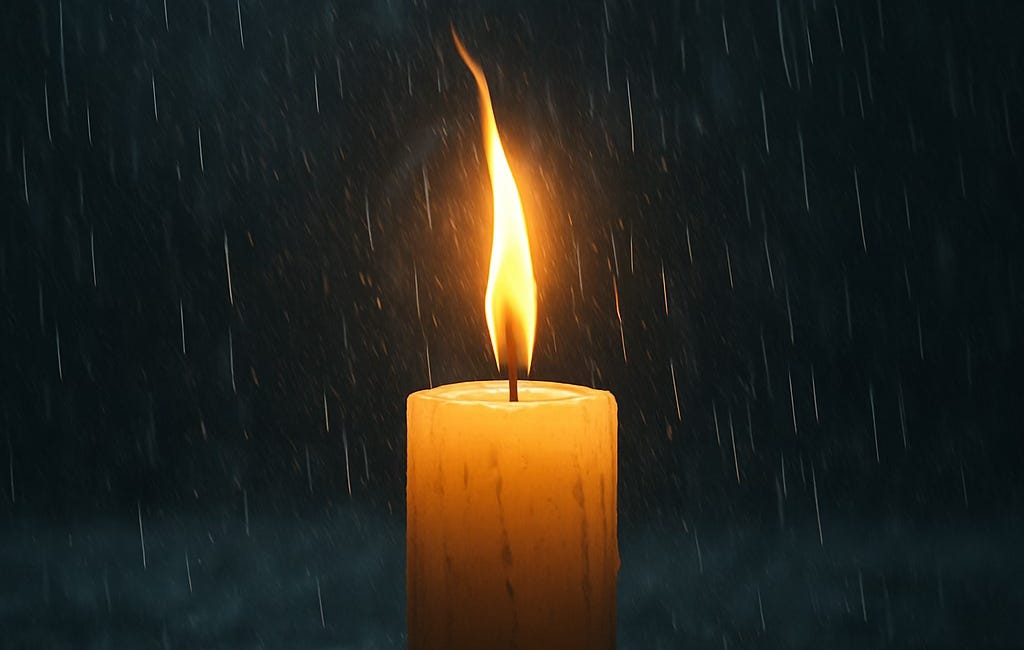We the People, Again: A New Continental Congress for a New America
Repairing What Was Built to Exclude
A Covenant Written in Disappearance
We were taught that America was founded on freedom.
But for whom?
Not for the enslaved.
Not for the dispossessed.
Not for the Indigenous nations whose lands were taken and whose names now hang like ornaments on stolen soil.
Not for women.
Not for the poor.
It was for them—white, Christian, property-holding men. That is the truth beneath the parchment.
The Constitution, for all its brilliance and promise, was a document of elegant betrayal—beautiful on the tongue, brutal in its exclusions. It codified who was visible and who was not. Who counted and who was counted out.
We like to speak of America’s “original sin” as slavery. But that phrase is too soft, too churchified, too abstract. The truth?
Slavery wasn’t a sin—it was a system.
It was infrastructure. Law. Currency. Policy.
It was the backbone, not the exception.
And while we laud the brilliance of the Founders, we must admit this: they engineered a government that served them and theirs. Every “we” in their sacred text meant them. Every liberty extended was carefully bounded. Every right, provisional.
As James Baldwin said:
“It is certain, in any case, that ignorance, allied with power, is the most ferocious enemy justice can have.”
And yet, that ignorance was written in Latin and parchment and signed with the bloodless grace of legal language.
The lie is not that America has failed to live up to its promise.
The lie is that the promise was ever meant for all.
We were not broken.
We were built this way.
But there is no healing without honesty.
No justice without admission.
No unity without memory.
The contract must be reckoned with—or rewritten.
Maybe what we need now is not another amendment.
Maybe we need a new covenant altogether.
Not a revision.
A rebirth.
“I am tired of talk that comes to nothing,” said Chief Joseph in 1879. “It makes my heart sick when I remember all the good words and all the broken promises.”
If we are to be a nation again,
If we are to be more than a brand,
More than a myth,
More than a machine that feeds the few at the expense of the many…
Then we must return to the beginning.
Not to revise the lie—
But to confront it.
And write the truth instead.
The Myth We Called Unity
We were told a story.
A story about brave men gathered in a room, debating liberty with powdered wigs and divine purpose. A story in which thirteen colonies became one people, united by courage and common cause. A story of freedom ringing from sea to shining sea.
But unity was never the foundation.
Power was.
Unity didn’t bind us.
It buried the fractures.
The South wanted slavery. The North wanted profit. The colonies wanted land they didn’t own, power they hadn’t earned, and independence they would weaponize to build empire. From the beginning, America was not a brotherhood of equals. It was a bargain between competing interests.
This is not cynicism. It’s clarity.
As Frederick Douglass thundered in 1852:
“This Fourth of July is yours, not mine. You may rejoice, I must mourn.”
And we have been mourning ever since.
The story of American unity has always demanded a cost: silence from the wounded, gratitude from the oppressed, and complicity from those who knew better. To belong was to forget who paid the price of that belonging.
For centuries, unity has been a euphemism.
Unity has meant: fall in line.
Unity has meant: don’t make it racial.
Unity has meant: this land is your land… until we need it back.
Even now, we invoke “healing” and “reconciliation” before we’ve told the truth.
Before we’ve sat with what was done.
Before we’ve named the names.
You cannot heal what you refuse to name.
And you cannot build a new nation on the bones of denial.
What if we stopped pretending?
What if unity was never real—
but could be?
What if the promise was not broken—
but never made to some of us at all?
If that is so—and I believe it is—then what we call "polarization" is not the disease. It's the fever breaking. It’s the truth, finally refusing to hide. It is painful, yes. But it is also sacred.
Because truth, not unity, is the precondition for justice.
And justice—not nostalgia—is the soil of any durable peace.
“We will not walk in fear, one of another,” Edward R. Murrow once warned.
“We are not descended from fearful men.”
But we are governed by them now.
We must remember that this house was not only divided—it was segregated, surveilled, and soaked in the labor of the brutalized.
No wonder it’s crumbling.
But maybe that’s good.
Maybe only by seeing the cracks can we build something honest.
What Must Be Rewritten
If the contract was flawed from the start—if the “we” in We the People never meant all of us—then it is not enough to reinterpret the Constitution.
We must revise the covenant.
Because what was written was not sacred.
It was strategic.
Crafted not by prophets, but by property owners.
Designed to preserve a hierarchy, not dissolve one.
The Founders were men of their moment—and that moment was soaked in exclusion. Their brilliance cannot absolve their blindness. Their vision does not excuse their violence.
Yet we have treated their words as scripture.
We’ve wrapped parchment in myth.
We’ve confused reverence with obedience.
We’ve mistaken inheritance for holiness.
But no document conceived in a nation of human bondage—by men who traded in flesh, who silenced women, who eradicated the rights of Native nations—can remain immune to moral reconstruction.
“America is false to the past, false to the present, and solemnly binds herself to be false to the future,” James Baldwin wrote.
What is a constitution, if not a mirror held to time?
If we are to become what we claim, we must re-found the Republic—not in blood, but in truth.
Not with musket and flag, but with courage and clarity.
We must admit what was never written.
We must hear the screams that were edited out.
We must acknowledge that the Bill of Rights was never meant for everyone.
This is not a crisis of interpretation.
It is a crisis of imagination.
Of moral authorship.
Do we still believe that a document born of compromise with white supremacy can guide us into collective liberation?
Do we believe that a democracy can grow while its roots are rotted with original sin?
We cannot amend our way into justice if the blueprint itself was built to exclude.
We need more than an update. We need a reckoning that births renewal.
“The arc of the moral universe is long,” said Dr. King, “but it bends toward justice.”
But arcs don’t bend on their own. Hands must seize them. Spines must strain. Feet must march.
This is why we must consider a New Continental Congress—not to burn the past, but to confront it. Not to erase, but to unmask. To assemble in light. To ask, openly and together: what would a constitution look like if it loved all of us?
A charter born not of fear, but of fidelity.
Not of hierarchy, but of dignity.
Not of domination, but of belonging.
“A nation,” Toni Morrison wrote, “is a place where a community of people try to live in right relation with one another.”
That cannot be inherited. It must be written.
So let us write it.
Not as editors of a fading myth.
But as authors of a future worth believing in.
Something honest.
Something unbought.
Something brave.
Let us rise to that.
Let us rise together.
The Inconvenient Truth of Our Founding
What if the rot wasn’t a flaw in the structure—but part of the design?
We like to tell ourselves that America was founded on the idea that “all men are created equal,” but we avoid asking who those words were meant to include. And even more inconvenient: who they were meant to exclude. The answer stares us in the face.
The Constitution, the sacred parchment so many revere, was written to codify power. It was revolutionary in some ways, yes—but only for the right people. Property-owning white men. Christian men. Men who looked at others—enslaved, indigenous, female, foreign—and saw them as lesser, if they saw them at all. The machinery of the state was built to keep them in place, and us in our place.
This wasn’t a glitch. It was the architecture.
James Baldwin put it clearly:
“It is a terrible, an inexorable law that one cannot deny the humanity of another without diminishing one's own: in the face of one's victim, one sees oneself.”
And that’s what makes this all so damning. Because even those who profess to love America rarely reckon with the fact that our founding didn’t fail to live up to our ideals—it defined them too narrowly from the beginning.
We’ve mythologized the Founders to the point of blindness. But mythology has consequences. It makes repair harder. It makes honesty feel like heresy. It makes any call to start again sound like treason.
But here’s the truth:
The house we live in was not built for everyone.
It was amended, patched, updated—and always resisted. And though many of us have tried to claim space in it, there are still rooms we’re not allowed to enter, ceilings we’re not allowed to touch, and doors that never open—unless we kick them down.
We need to stop pretending that the original blueprint is sacred. If anything is sacred, it’s the promise of liberty for all. And if the blueprint doesn’t deliver that, we don’t fix the cracks—we redraw the plans.
As Audre Lorde reminds us:
“The master’s tools will never dismantle the master’s house.”
And if we are to build a new house—more just, more honest, more complete—we must begin by acknowledging what the old one was built for… and whom it was built against.
Why Incrementalism Has Failed
We have tried.
For decades, we have tried.
We have amended. We have legislated. We have sued and voted and protested and testified. We have written letters to Congress and marched in the streets, holding candles that flickered like the last hopes of a people told to wait.
We have done what good citizens were told to do.
But the system was not built for good citizens.
It was built for control.
And control does not yield to courtesy.
We were told the Constitution was a living document.
But if it lives, it has learned to defend itself.
It has grown teeth.
It devours reformers and spits out fragments.
Every time we’ve tried to bend the arc toward justice, the system has snapped it back.
Reconstruction? Reversed.
Voting rights? Gutted.
Equal protection? Conditional.
Police reform? Delayed to death.
And while we marched for progress, they fortified the foundation.
They stacked the courts.
They rewrote the rules.
They redrew the maps.
They deregulated the money.
They privatized the pain.
They turned the people’s house into a gated compound—and the law into a weapon.
Not because we failed.
But because they were never going to let us succeed.
“I am no longer accepting the things I cannot change. I am changing the things I cannot accept.” —Angela Davis
Incrementalism comforts the conscience of the privileged.
It’s a bedtime story for people whose rights were never on the line.
It whispers: justice just takes time.
That history moves on its own.
That all we have to do is wait our turn.
But there is no “turn” when the wheel is rigged.
You cannot reform a thing that was never meant to include you.
The Senate was not built to represent the people.
The Electoral College was not built to reflect the will.
The Supreme Court was not built to deliver justice—it was built to defend the existing order under the guise of impartiality.
These are not bugs in the system.
They are the system.
And when fascism returns—as it has now—it does not need to overthrow the government.
It only needs to inherit it.
This is not the failure of good ideas.
It is the success of bad architecture.
And now that architecture protects tyranny in the name of tradition.
“Not everything that is faced can be changed, but nothing can be changed until it is faced.” —James Baldwin
So no—we cannot amend our way out of this.
We cannot tweak our way to liberation.
We cannot inch toward justice on foundations poured in blood and denial.
The house is leaning.
The floorboards are rotted.
The roof is caving in.
And still we are told to rearrange the furniture.
No more.
If democracy is to mean anything now, it must be rebuilt on ground that belongs to all of us.
With walls that shelter the many.
With windows that open.
With doors that do not lock behind the privileged.
This is not renovation.
It is reckoning.
And every generation is given a moment to ask:
Is the system still ours—or has it been sold?
This is that moment.
And if we do not seize it—those who profit from our paralysis will.
The Moral Case for a New Continental Congress
We’re told that rewriting the Constitution would be too radical. But what could be more radical than founding a nation on stolen land, built by stolen people, governed by stolen power—and then calling that justice?
The revolution never ended. It just changed clothes.
Today’s aristocrats don’t wear crowns. They wear Senate pins. They sign executive orders. They wrap tyranny in tradition and call it legacy.
But we are not bound to their illusions. We are not required to live inside the lie.
The Constitution was not sacred. It was strategic. And strategies can be replaced.
We have amended. We have sued. We have marched. We have waited for a system never meant to see us—let alone serve us. We have asked the bones of an old house to warm us.
But the house is cold. Because it was never built to shelter all of us.
So what now?
What do you do with a document that gave liberty to some and silence to the rest?
What do you do with a flag that promises freedom while covering a body it helped bury?
You stop saluting—and start asking: What would it mean to build something that loves all of us back?
Not just a better policy. Not just another patch. But a new covenant.
Not a rebellion. A re-founding. Not a revision—but a reckoning. Not a conference of experts—but a convocation of the people.
Indigenous and immigrant. Poor and working-class. Black, brown, white, and all the colors we’ve been taught to fear. Secular and sacred. Queer and questioning. Exhausted and becoming.
Not to tweak the text. To tell the truth.
“We are the ones we have been waiting for.” —June Jordan
A New Continental Congress would not be a meeting. It would be a moment. A rupture in the mythology. A reckoning with reality. A sacred act of moral authorship.
Let it ask the questions the founders refused:
What is freedom now?
What does dignity demand—not just for citizens, but for human beings?
What must be remembered? What must be repaired?
Who is America for, and who is still left knocking at the gate?
Let it ask—not with permission, but with courage:
What is sacred now?
Who gets to decide?
And what would it mean to start again, not in blood, but in belonging?
This is not safe work. It is dangerous. It is fragile. It is necessary.
But there is greater danger in doing nothing. More fragility in pretending. And greater violence in silence than in speech.
Because if we do not convene with moral clarity, they will convene with authoritarian intent.
And what they will write next will not be a constitution. It will be a contract for permanent control.
So no—we don’t rewrite the founding as a gesture. We rewrite it as a rescue.
We do it not out of rage, but out of reverence—for the people who were never allowed in the room, and the future that demands we open the door.
We do it because to inherit injustice and call it heritage is complicity. And to accept it in silence is a form of surrender.
“In a free society,” said Rabbi Abraham Joshua Heschel, “some are guilty, but all are responsible.”
And we are responsible now.
Not just to resist what is—but to imagine what could be.
This is our task: To write what was never written. To found what was never founded. To gather not as subjects of history—but as authors of what comes next.
Let us write it.
With courage. With memory. With fire.
Let us write what has always been missing: A country that belongs to all of us. And a covenant that does not disappear.
The Dangers of Doing Nothing
There is always a reason to wait.
Wait until after the election.
Wait until the next court ruling.
Wait until the next outrage subsides.
Wait until it’s safer.
Until it’s clearer.
Until someone else goes first.
But empire thrives on delay.
It survives by convincing you that caution is wisdom—and that silence is noble.
It counts on your exhaustion. It banks on your restraint.
And while we wait, it moves.
It redraws the maps.
It rewrites the laws.
It packs the courts and trains the next generation of tyrants.
It turns the machinery of government into a mirror of its own ambition.
This is how it happens.
Not with a bang—but with a whimper.
Not with tanks in the street—but with tradition in its mouth and conquest in its heart.
We aim low and call it pragmatism.
We aim for civility with those who trade in cruelty.
We aim for peace with those who prefer obedience.
But you cannot negotiate with a system designed to erase you.
And you cannot make peace with an order that profits from your silence.
“When we are no longer able to change a situation,” wrote Viktor Frankl, “we are challenged to change ourselves.”
That is where we are now.
We are not powerless.
We are not voiceless.
But we are being taught to behave as if we are.
The danger is not just authoritarianism.
The danger is the slow, quiet burial of hope.
The numbing of imagination.
The internal whisper that says: nothing will change.
That whisper is the lullaby of empire.
It wants you passive.
It wants you discouraged.
It wants you compliant.
Because if we do not act—if we do not convene—others will.
And their congress will not speak for the people.
It will speak for dominion.
It will canonize exclusion.
It will constitutionalize cruelty.
There will still be elections—but they will be theater.
There will still be laws—but they will protect the powerful.
There will still be flags—but they will cover a silence deeper than any grave.
“You may not be interested in politics,” warned Trotsky, “but politics is interested in you.”
We don’t get to opt out.
Silence is not neutrality.
Waiting is not wisdom.
And nostalgia is not loyalty.
The danger is not that we will go too far.
The danger is that we will go nowhere.
That we will look back on this moment—this brief, flickering window of possibility—and realize we mistook comfort for courage.
This is the moment.
Not someday.
Not after the next cycle.
Not once it feels safe.
Now.
Because the greatest danger isn’t confrontation.
It’s consent.
Further Reading:







an excellent history lesson so well spoken ... the danger of doing nothing is consent
You're words say what is true in the most eloquent manner possible. Please continue; even from New Zealand they ring true.